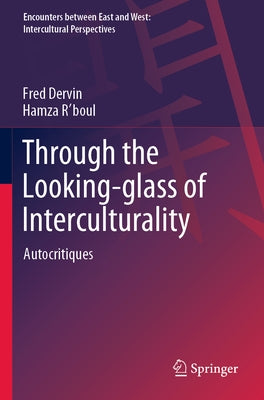Before you leave...
Take 20% off your first order
20% off
Enter the code below at checkout to get 20% off your first order
Discover summer reading lists for all ages & interests!
Find Your Next Read

This book starts from the premise that honest and constructive dialogue between scholars and educators of interculturality, especially from different geopolitical spheres, is needed more than ever. The book is about the important and yet contested notion of interculturality-a notion used in different fields of research. It was co-written by two scholars who have never met before and who got to know each other intellectually and personally in the process of writing this book, using interculturality as a looking-glass. (Re-)negotiating meanings, ideologies and their own identities in writing the chapters together, the authors enter into multifaceted dialogues and intercommunicate, sharing while accepting disagreements. The co-authors' different profiles in terms of geography, generation, status, preferred paradigms and multilingual identity (amongst others) are put forward, confronted, and mirrored in the different chapters, leading to the joint negotiation of aspirations concerning interculturality in communication and education. While describing their current takes on interculturality they also conduct autocritiques of their past and present engagement with the notion. The following questions are also addressed: Who is talking the most about interculturality in the world today? Whose voices are not heard? How to disrupt current hegemonies around the notion for real? And how to promote epistemological plurality in the discourses and narratives shaping our understandings of the notion? Autocritiquing is proposed as a way of unthinking and rethinking interculturality ad infinitum. This book argues that engaging with the notion requires constant self-reflection, examining one's positionality and intersectionality, listening to the voices that one projects onto the world of, e.g., research and education, and operating transformations in one's thinking, trying out new paradigms, ideologies and methods.
Fred Dervin is a professor of Multicultural Education at the University of Helsinki (Finland). Professor Dervin specializes in intercultural communication education, the sociology of multiculturalism and international mobilities in education. He has widely published in different languages on identity, interculturality and mobility/migration (over 150 articles and 70 books). His latest books include Dervin & Jacobsson (2022) Intercultural Communication Education. Broken Realities and Rebellious Dreams (Springer) and Dervin (2022) Interculturality in Fragments: A Reflexive Perspective (Springer). Exploring the politics of interculturality within and beyond the 'canon' of intercultural communication education research has been one of Dervin's id馥 fixes in his work over the past 20 years.
Hamza R'boul is a Research Assistant Professor at the Department of International Education, Education University of Hong Kong, Hong Kong, China. His works examine the western hegemony in knowledge production and dissemination in different contexts including intercultural communication and English language teaching. He has published in e.g. Journal of International and Intercultural communication, Language and Intercultural communication, Journal of Multicultural Discourses and Journal of Multilingual and Multicultural Development. His research interests include intercultural communication and education, cultural politics of language teaching, postcoloniality and geopolitics of knowledge.
Thanks for subscribing!
This email has been registered!
Take 20% off your first order
Enter the code below at checkout to get 20% off your first order